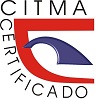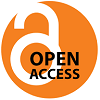Instrument to measure teachers' attitudes towards the teaching of English to pupils with learning difficulties
Instrumento para medir actitudes profesorales hacia la enseñanza del inglés a educandos con dificultades en el aprendizaje
Palabras clave:
attitude, teachers, English, learning difficultiesResumen
La actitud del profesor de inglés es un predictor importante de buenas prácticas educativas. Se integra por tres componentes esenciales, el cognitivo, el afectivo y el conductual. El artículo describe el procedimiento utilizado para validar el instrumento “Escala para medir las Actitudes de Profesores de Lenguas Extranjera hacia la enseñanza inclusiva a educandos con dificultades en el aprendizaje en escuelas primarias y especiales”. Se utilizó un enfoque de investigación no experimental, de tipo descriptiva y paradigma mixto a partir del método dialéctico materialista como método general. Los resultados indican que los profesores presentan actitudes indecisas en sus tres componentes. La escala demuestra utilidad en la medición de las actitudes de profesores de inglés en formación y en ejercicio.
Abstract
The English teacher’s attitude is an important predictor of good educative practices. It consists of three essential components, cognitive, affective and behavioural. The article describes the procedures used to validate the instrument “A Scale to measure Foreign Language Teachers’ Attitude Towards Inclusive English Language Education to Pupils with Learning Difficulties in Primary and Special Schools”. A non-experimental descriptive research approach has been used, with a mixed paradigm based on the materialist dialectical method. The findings reveal indecisive attitudes of the teachers in its three components towards the inclusive teaching of English to students with learning difficulties in primary and special schools. The scale has evidenced to be useful to measure the attitude of both in - service English teachers and teachers - to - be.
Key words: attitude, teachers, English, learning difficulties
Descargas
Citas
Allport, G. (1935). Attitudes, en Murchison (ed.), Handbook of social psychology, Worcester, Clark University Press.
Cortina, J. M. (1993). What is coefficient alpha? An examination of theory and applications. Journal of Applied Psychology, 78(1), 98–104. https://doi.org/10.1037/0021-9010.78.1.98
Forlin, C., & Chambers, D. (2011). Teacher preparation for inclusive education: Increasing knowledge but raising concerns. Asia Pacific Journal of Teacher Education, 39(1) 17–32. doi:10.1080/1359866X.2010.540850
Forlin, C.; Sharma, U. & Loreman, T. (2014). “Predictors of improved teaching efficacy following basic training for inclusion in Hong Kong”, International Journal of Inclusive Education, 18 (7).
Granada M., Pomés MP & Sanhueza S. (2013). Actitud de los profesores hacia la inclusión educativa. Papeles de Trabajo Nº 25 - Julio 2013.
Herrera, Mª. T. (2012). Actitudes hacia la educación inclusiva en docentes de primaria de los liceos navales del Callao. Tesis de maestría. Universidad San Ignacio de Loyola, Lima. Perú
Kormos, J. & Nijakowska, J. (2017). “Inclusive practices in teaching students with dyslexia: Second language teachers’ concerns, attitudes and self-efficacy beliefs on a Massive Open Online Learning Course”, Teaching and Teacher Education, 68, pp. 30-41.
Kormos, J., & Kontra, H. (2008). Hungarian teachers’ perceptions of dyslexic language learners. In J. Kormos & E.H. Kontra (Eds.), Language learners with special needs: An international perspective (pp.189–213). Bristol, UK: Multilingual Matters.
Timo Saloviita (2020). Attitudes of Teachers Towards Inclusive Education in Finland, Scandinavian Journal of Educational Research, 64:2, 270-282, DOI: http://di.org/10.1080/00313831.2018.1541819
Mendoza Zúñiga M., Enríquez O’Farril I., & López Pavón L. (2022). Actitudes de profesores de lenguas extranjeras hacia la enseñanza inclusiva del inglés a educandos con dificultades en el aprendizaje Contexto cubano. Órbita Científica. No. 119 Vol. 28. Recuperado de: http://revistas.ucpejv.edu.cu/index.php/rOrb/article/view/1687
Ministerio de Educación Superior. (2016). Plan de estudio. Carrera Licenciatura en Educación Lenguas Extranjeras. La Habana. Cuba.
Muñoz, P.A., Velásquez, H.I. y Asprilla, W.F. (2018). Actitudes docentes frente a la educación para la diversidad (Tesis de Maestría). Universidad Pontificia Bolivariana. http://hdl.handle.net/20.500.11912/4014
Nijakowska, J. (2014): “Dyslexia in the European EFL teacher training context”, Pawlak, M. & Aronin, L. (eds.): Essential topics in applied linguistics and multilingualism, Heidelberg: Springer, pp. 129-154.
Nijakowska, J., Tsagari, D. & Spanoudis, G. (2018). “English as a foreign language teacher training needs and perceived preparedness to include dyslexic learners: The case of Greece, Cyprus and Poland”, Dyslexia, 24 (4), pp. 357-379. https://doi.org/10.1002/dys.1598
Nijakowska, J. (2019). Foreign language teachers’ preparedness to cater for special educational needs of learners with dyslexia: a conceptual framework, European Journal of Special Needs Education, 34:2, 189-203, DOI: https://doi.org/10.1080/08856257.2019.158140
Nijakowska, J., Tsagari, D., & Spanoudis, G. (2020). Cross-country comparison of EFL teacher preparedness to include dyslexic learners: Validation of a questionnaire. Studies in Second Language Learning and Teaching, 10(4), 779-805. https://doi.org/10.14746/ssllt.2020.10.4.6
Rodríguez, A. (1989). Interpretación de las actitudes. En Rodríguez; J.Seoane, Creencias, actitudes y valores (pp.199-314) Madrid: Alhambra.
Rodríguez Fuentes, A., Caurcel Cara, M., & Alaín, L. (2019). Medir actitudes profesorales españolas hacia la educación inclusiva para lograr una escuela para todos. Actas Icono 14, 1(1), 416-433. Recuperado a partir de https://icono14.net/ojs/index.php/actas/article/view/1338
Publicado
Cómo citar
Número
Sección
Licencia
Derechos de autor 2022 Marcel Mendoza Zúñiga, Isora Enríquez O’Farril , Lázaro Armando López Pavón

Esta obra está bajo una licencia internacional Creative Commons Atribución 4.0.
Horizonte Pedagógico es una revista Open Access, lo que quiere decir que todo su contenido es accesible libremente sin cargo para el lector o su institución. Los usuarios están autorizados a leer, descargar, copiar, distribuir, imprimir, buscar o enlazar a los textos completos de los artículos de esta revista sin permiso previo del editor o del autor, de acuerdo con la definición BOAI de open access. Los autores que publican en esta revista están de acuerdo con los siguientes términos: Los autores conservarán los “Derechos de autor” y garantizan a la revista el derecho de ser la primera publicación del trabajo. La revista se encuentra protegida bajo una licencia internacional de Creative Commons Attribution License Atribución 4.0 Internacional (CC BY NC 4.0), que permite a otros compartir (copiar y redistribuir el material en cualquier medio o formato) y adaptar (remezclar, transformar y construir a partir del material), para cualquier propósito, incluso comercialmente. Bajo las siguientes condiciones: atribución (usted debe dar crédito de manera adecuada, brindar un enlace a la licencia, e indicar si se han realizado cambios y no comercial — Usted no puede hacer uso del material con propósitos comerciales. Puede hacerlo en cualquier forma razonable, pero no de forma tal que sugiera que usted o su uso tienen el apoyo de la revista o el autor de la publicación.






















